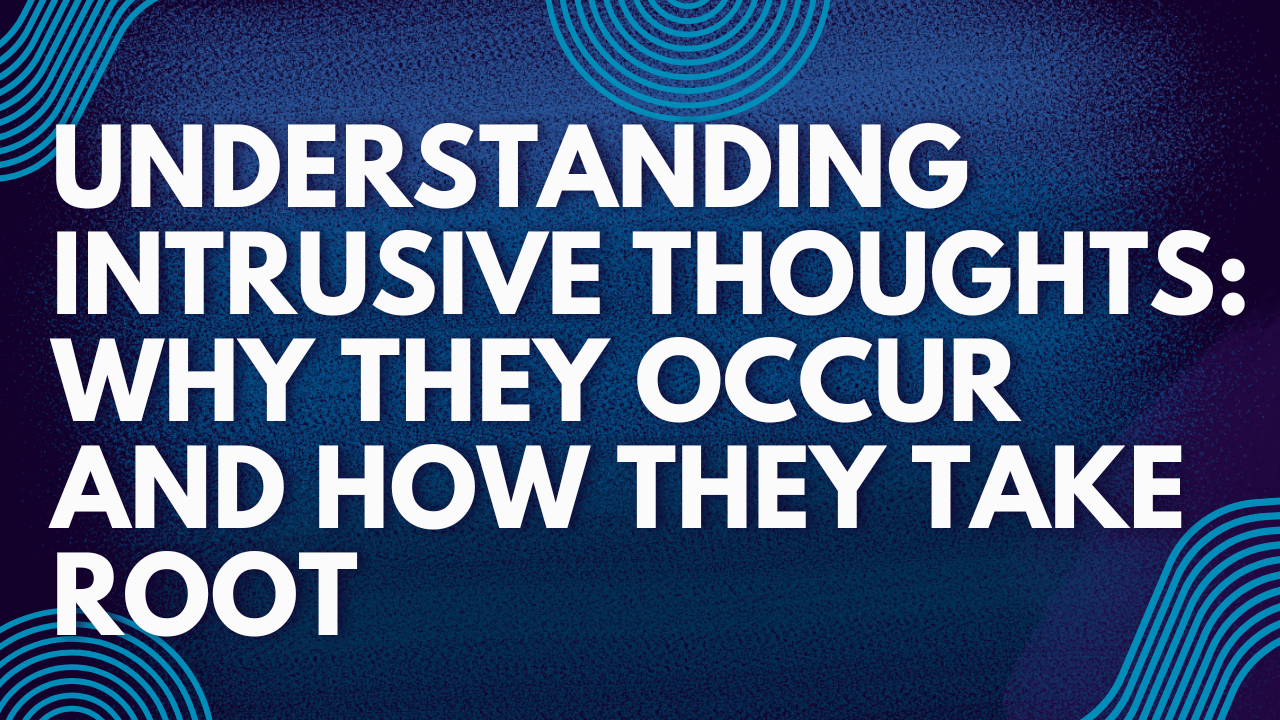Intrusive thoughts are unwanted, distressing ideas or images that seem to come out of nowhere. While everyone experiences them, those with Religious OCD often struggle to let them go, fearing they mean something about their faith or morality.
Have you ever had a shocking or disturbing thought pop into your head seemingly at random? Maybe an offensive thought about God, an irrational fear that you’ve committed a terrible sin, or an image that feels completely out of character for you? Most people experience occasional intrusive thoughts, but for those with Religious OCD, these thoughts can become overwhelming and deeply distressing.
Instead of dismissing them as random mental noise, a person with Religious OCD may believe these thoughts are spiritually significant or revealing of their true nature. This misunderstanding can lead to anxiety, endless rumination, and compulsive behaviors aimed at proving or disproving the thought’s meaning.
What Are Intrusive Thoughts?
Intrusive thoughts are involuntary and unwanted thoughts, images, or urges that enter a person’s mind unexpectedly. They are often distressing because they seem to contradict a person’s values or beliefs.
Some common examples of intrusive thoughts in Religious OCD include:
- Blasphemous thoughts about God or Jesus
- Fear of having committed the unforgivable sin
- Doubts about one’s salvation that feel impossible to resolve
- Unwanted thoughts of saying or doing something sinful
- Obsessing that one could or will do something sinful
- Visions of inappropriate or irreverent actions in a sacred space
It’s important to understand that intrusive thoughts do not reflect a person’s true desires or character. They are simply a byproduct of how the brain processes information and handles uncertainty.
Why Do Intrusive Thoughts Occur?
The human brain is designed to generate thoughts constantly, many of which are irrelevant or nonsensical. However, the brain of a person with OCD tends to attach undue significance to certain thoughts, interpreting them as threats that require immediate attention.
A few key reasons why intrusive thoughts take root in Religious OCD:
- Hyper-Responsibility – The belief that one must control or eliminate all sinful thoughts to be right with God.
- Thought-Action Fusion – The mistaken belief that having a thought is morally equivalent to acting on it.
- Intolerance of Uncertainty – The need for absolute certainty in one’s salvation or spiritual standing.
- Attempts to Suppress Thoughts – The harder one tries to push intrusive thoughts away, the more persistent they become.
Understanding these mechanisms can help individuals begin to challenge their reactions to intrusive thoughts and reduce their power.
What Does the Bible Say About Intrusive Thoughts?
Scripture acknowledges that believers will face distressing thoughts and temptations but reassures us that these do not define our faith. Consider Paul’s words in Romans 7:19:
“For I do not do the good I want, but the evil I do not want is what I keep on doing.”
Even faithful Christians experience struggles in their thoughts, yet God’s grace remains sufficient.
Additionally, 2 Corinthians 10:5 encourages believers to “take every thought captive to obey Christ.” This does not mean obsessively monitoring or controlling every thought but rather recognizing that intrusive thoughts are not sinful in themselves—they are simply thoughts. While human nature is fallen and imperfect, it is our response to these thoughts that matters spiritually. Through God’s grace, believers can learn to approach unwanted thoughts with wisdom and reliance on His truth.
How to Respond to Intrusive Thoughts
Instead of engaging in compulsions like excessive praying, reassurance-seeking, or avoidance, a healthier response to intrusive thoughts includes:
- Recognizing Them as Intrusive – Acknowledge that these thoughts are unwanted and do not define you.
- Allowing Them to Exist – Instead of pushing them away, observe them without reacting.
- Refusing to Engage – Avoid analyzing or trying to prove or disprove the thought.
- Trusting God’s Grace – Remind yourself that your faith is not dependent on perfect thought control.
What’s Next?
In the next article, we will explore the nature of compulsions in Religious OCD—why they form, how they reinforce the OCD cycle, and healthier ways to address them.
More on that next week…
For Kentucky Residents
If you live in Kentucky and are seeking support for religious OCD or scrupulosity, our team at Next Step 4 Mental Health in Louisville is here to help. We offer compassionate, evidence-based care—both in-person and through telehealth—for children, teens, and adults.
📍 nextstep.doctor
📞 502-339-2442
For Those Outside Kentucky
If you’re not a Kentucky resident, we encourage you to seek care from a licensed mental health provider in your area. Professional support can be a vital step toward healing and peace.
Note: This article is for educational purposes only and is not intended as medical advice. Please consult a licensed mental health provider for appropriate care.



